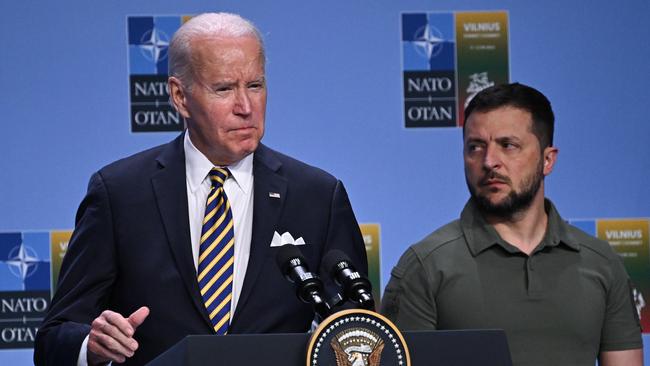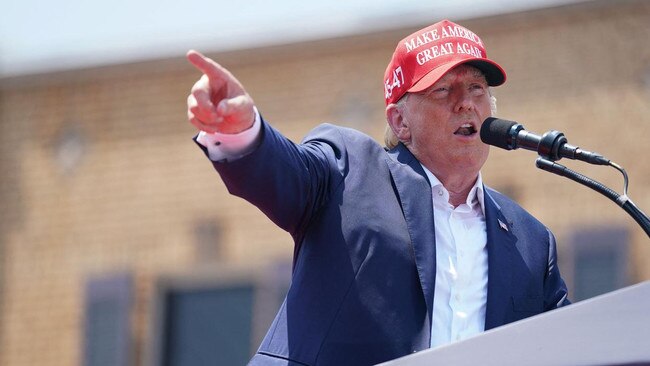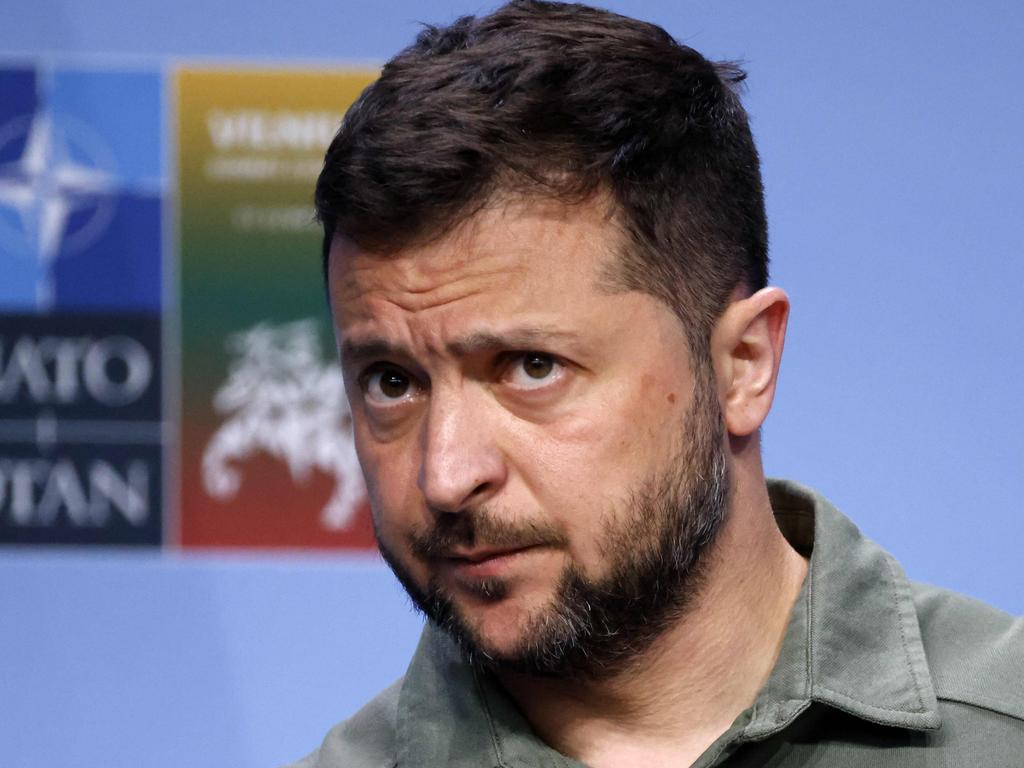Time is ticking on US support for Ukraine
Whoever wins the White House next year will lead a country increasingly sceptical of the price it is paying for the war.

You have to have a very crimped view of statesmanship, or else be a stooge of Vladimir Putin, not to have watched with awed admiration the performance of Volodymyr Zelensky these past 18 months. In a world of shrunken political leaders where once-great countries now seem to be ruled mainly by narcissists, moral pygmies and decrepit hacks, the Ukrainian president’s courage and fortitude have revived faith in the very idea of leadership.
And yet even great men – perhaps especially great men – need to be reminded from time to time of the constraints that political reality imposes. Zelensky’s little tantrum this week over Nato’s refusal to give a clear and defined path for his country’s membership is a case in point.
No one should blame the Ukrainian president for trying to lock his nation as tightly as possible into the embrace of the West. He is in an existential fight and, given the stunning performance of his own people and military, it is understandable he thinks that if he can ratchet up Nato’s commitment – and especially that of the United States – to the point of long-term security guarantees, then Ukraine’s survival is within his grasp. But he should also know that American public and political support for Ukraine is a mile wide and an inch deep.
Doubts about the case for US military assistance are growing steadily, especially on the right. In May 2022, as Joe Biden’s administration and Congress were uniting to send large tranches of aid, only 12 per cent of Americans thought the US was doing too much, according to the Pew Foundation. Last month that number had risen to 28 per cent and is now almost twice as many as those saying the US is not doing enough. Among Republicans the waning enthusiasm for Kyiv is starker. In May last year 19 per cent thought the US was doing too much. That number is now 44 per cent, three times as many as those who say the US is not doing enough.
My British friends are often puzzled and dismayed by these trends. How can Americans not see the justice of the Ukrainian cause? How can they not see that it’s in the US’s own interests that Zelensky defeats Putin?
These are reasonable questions and as someone who strongly supports the use of my tax dollars for the purpose, I too am concerned that diminishing numbers of Americans see the value of the US strategy. But it’s important for Europeans also to understand why a growing number of American conservatives, especially, are doubtful about the justice and wisdom of the approach.
Conversations with a number of well-connected Republicans in the last week – big donors to and supporters of presidential candidates who, by the way, are not called Donald Trump – remind me that there are a multitude of reasons for scepticism about the war. While admiring Ukraine’s steadfastness, many are reluctant to join in the gauzy encomiums for a country some of them know quite well. They point out that it has long been deeply corrupt – by many measures, in fact, the most corrupt of all the post-Soviet states –- and they are tired of hearing about what a fine model of democracy it is.

Some, including prominent foreign policy specialists, continue to insist that while they despise Putin, the expansion of Nato in the early 2000s was an unnecessary provocation to Moscow and the historic importance of Ukraine to Russia is not something we have taken seriously enough.
Others argue, again with cause, that the US support for Ukraine is depleting its own military capabilities and leaving it under-equipped for a potential conflict with its much more important strategic adversary, China. Still others ask: what is the military objective? Do we really think Russia is going to surrender? If some sort of brokered peace is necessary, why continue to act in a way that makes it harder?
Above all, few things infuriate Americans more than being told by Europeans that they have a bounden duty to defend Europe from other Europeans. That is, after all, what Americans think they’ve been doing for more than a century, at great cost in blood and treasure.
European attitudes towards American military support for their defence sometimes remind me of the old New Yorker cartoon in which a customer in a bookshop says to the bookseller: “I want a book on chutzpah and I want you to pay for it.”
I know full well the argument that this is not some act of charity on America’s part but a vital contribution to its own security. But that argument is getting harder to make. As their own relative economic and strategic power has waned in the 21st century, fewer Americans see why they should continue to bear a burden of global leadership that seems like the legacy of a different era of geopolitics. That sense is sharpened by the continuing scars of the disastrous wars into which America has plunged itself over the past 20 years.
The domestic political impact of all this is to strengthen the prospects of those Republicans who want to decouple the US from Ukraine. You don’t have to be credulous enough to believe that Trump believes he could bring an end to the war “in 24 hours”. But you should understand that his absurd claim speaks to an aspiration held by growing numbers of Americans.
Time, I suspect, is running out. If the current counteroffensive fails to achieve a decisive shift in the war’s progress, not only Republicans but growing numbers of Democrats will be looking for an exit. And if the battle lines are little different from where they are now by next November, when America elects its president, it will not only be Trump promising to bring the war to an end.
The Times







